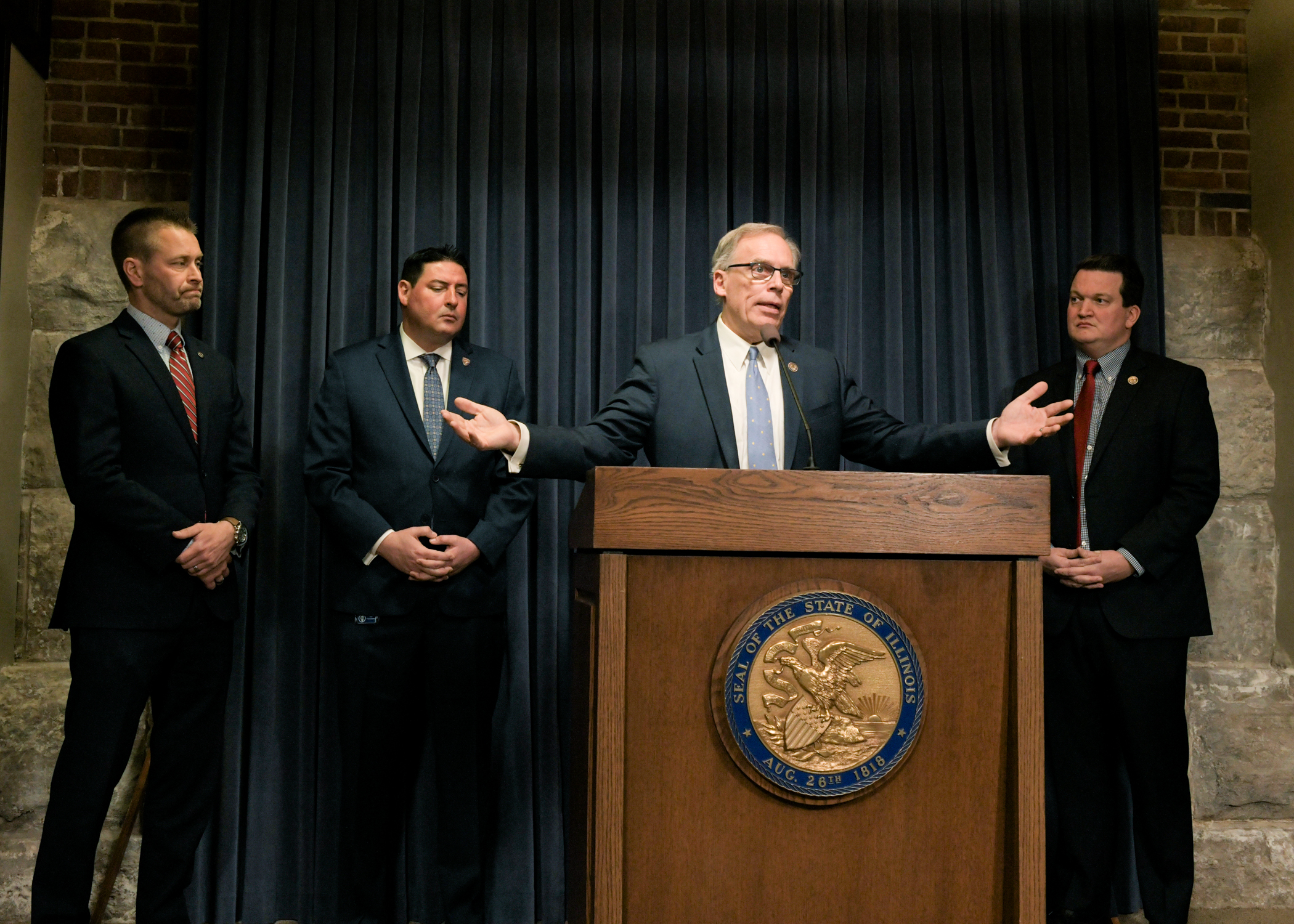The three Senate Republicans who sit on the bipartisan and bicameral Joint Committee on Administrative Rules (JCAR) had an opportunity to question Gov. JB Pritzker’s Department of Health and Family Services (DHFS) officials on Tuesday over their program to provide free healthcare to undocumented immigrants. DHFS officials came to JCAR to present rules to begin charging co-pays to migrants in the program.
During the hearing, the Senators learned that copays will be far more limited and vastly less expensive than traditional healthcare plans that most Illinoisans have. In addition, managed care providers can decide whether or not they will charge co-pays, with one of the largest providers in Cook County already announcing they will not. At the meeting, it was learned that mandatory co-pays will only exist for overnight hospital stays and surgical procedures.
A group of Senate Republicans held a press conference on Thursday, and highlighted the misplaced priorities that allow noncitizens to receive healthcare at nearly no cost while Illinoisans continue to pay hefty premiums and co-pays for the same services. The Senators explained how the free healthcare for noncitizens program has ballooned from an estimated $2 million to over $1 billion in just a few years. They also pointed out that Illinois taxpayers are not only paying premiums and co-pays for their own health insurance, but the taxes they pay are also covering the cost of healthcare for the hundreds of thousands of noncitizens who have come to Illinois.
During the budget process last year, the Pritzker Administration claimed that they could keep the annual budget for the program under $550 million. At Tuesday’s JCAR meeting, DHFS officials admitted they were already over budget and announced the cost of the healthcare component alone would be in the range of $770 million this year, eclipsing the cost that was initially promised by nearly 50%. According to current estimates, total spending on all programs for noncitizens during fiscal years 2023 and 2024 is likely to exceed $2 billion.

Comments are closed